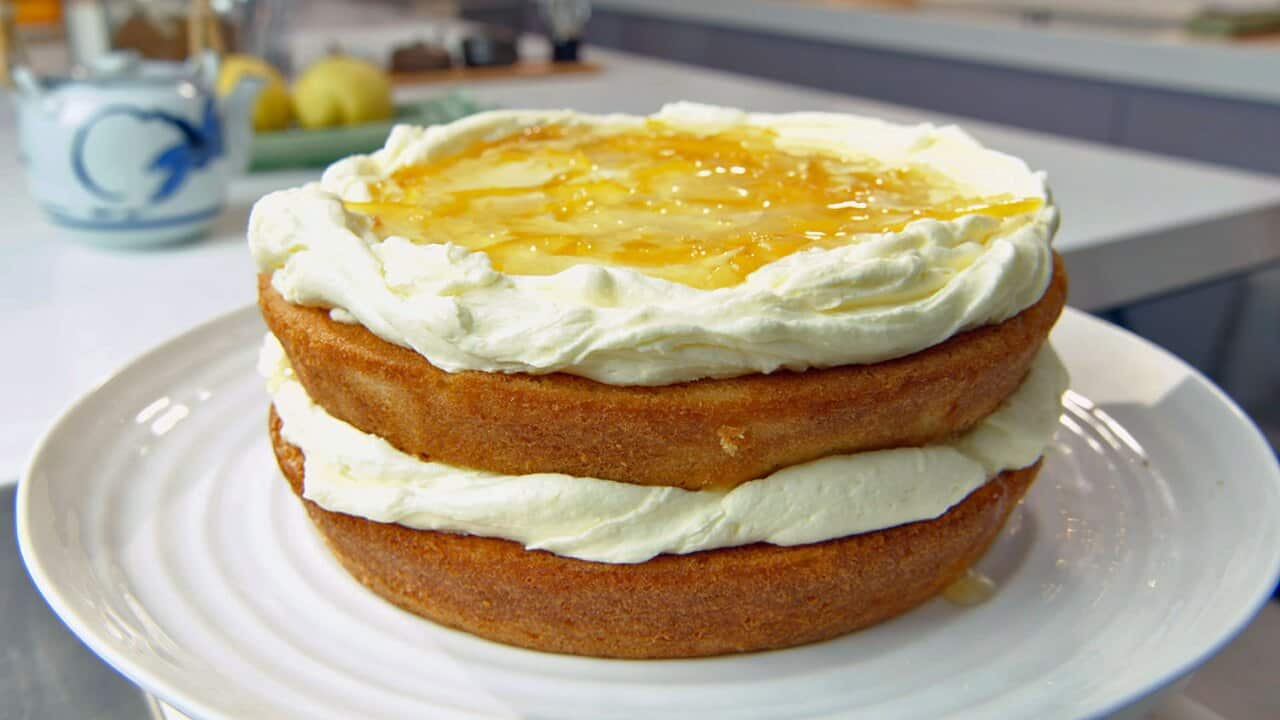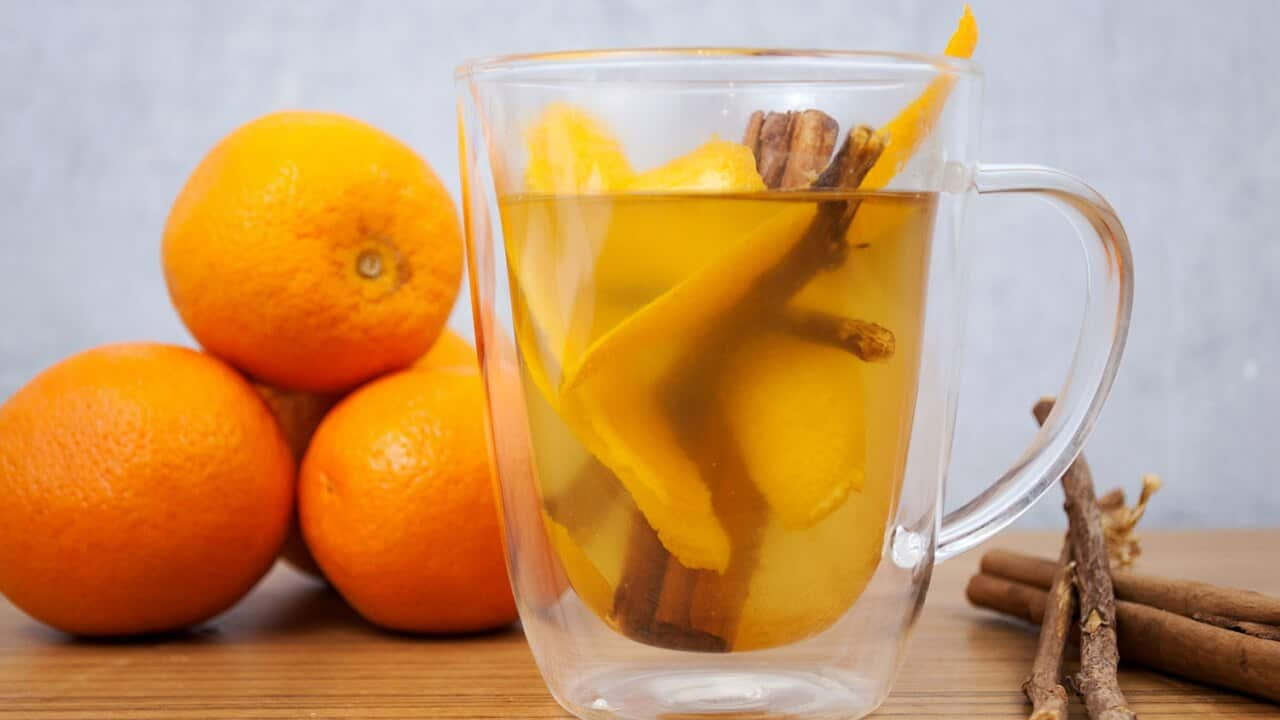LISTEN TO

Tea: Scandal water, life saver, yum cha essential
SBS Audio
25:20
You could measure Cathy Zhang's life in cups of tea. She currently runs in Sydney's Potts Point, but she's also been an international tea judge, and even studied tea science at in Guangzhou where she took part in tea production around the country.
There was the time she harvested tea from in Guangdong – a region famous for its oolong. "At the end of the day, our fingers were totally green and really rough from picking," she says. Zhang remembers the heady, floral fragrance of the just-plucked leaves accumulating in her bamboo basket.
She made iron goddess tea with her team in the Fujian province and later on, she'd travel to Yunnan by herself, the region that is reputed as the and is famous for its pu'er.
"Each area has its famous teas. Some teas can only be produced in that area, it's just like champagne, it can only be produced in Champagne," she says. "If you grow the same trees somewhere else, it won't taste the same."
She also pushed boundaries in her tea science degree.
"We extracted from the lab and extracted the accents of tea, and put it in a can and sterilised it to make it a product with a six-month shelf life. I made tea-flavoured peanut drink," she says. "It was nutty and fragrant. It was like you were eating peanuts, but drinking oolong tea at the same time."
She scored a high distinction for it.
During her degree, she also learned about the of tea – and the powerful role the brew played in shaping politics, international relations and border control. Zhang can easily tell you about how – and China's insistence it be paid with silver – launched the . Or the time a Scottish botanist named disguised himself as a Chinese man ("which is crazy") to steal black tea from the Fujian province to smuggle back to the British, to try to dismantle China's monopoly on the commodity.
"Tea opened a lot of doors and introduced a lot of suffering and wars," she says.
The world's most popular drink (after water) wasn't just shaped by the mountains of China, but its trade routes, too. You might have heard of the Silk Road, but do you know about ? This extensive path led to pu'er tea being pressed into cake form so it could travel the long distance from Yunnan to Tibet, fermenting and oxidising with every hoof step.
Sometimes you can taste the fragrance of wood, or the fragrance of milk. Usually it's not just one note, it's different notes layered on top of one another.
"Oxidisation is very important in tea-making because it determines the character of the tea," says Zhang. "Through oxidisation, that will turn the grassy notes and green notes into something floral, into something fruity, into something more. Sometimes you can taste the fragrance of wood, or the fragrance of milk. Usually, it's not just one note, it's different notes layered on top of one another.
"When you do tea ceremonies, you get to drink from concentrated tea in a smaller cup, and that way you can appreciate all those different flavours," she says.
As a tea judge in several international competitions, Zhang knows a lot about recognising the subtleties and qualities of a well-made brew.
"If it's an oolong tea, the fragrance needs to be quite significant, because oolong tea is judged by the fragrance. However, if it's black tea, colour is very important."
She also assessed 'tea performance', a manner of serving tea that's elegant and efficient, and likened to being invisible.
"It's like a meditation, every step has a meaning. You're not wasting movement. It's a conversation between you and the tea." She compares it to kung fu: "it takes time and effort to master. It takes years to level up."
It's like a meditation, every step has a meaning. You're not wasting movement. It's a conversation between you and the tea.
Given her expertise, she's well equipped to be opening a tea store in Sydney. Launching Ms Cattea is a dream she has had for a long time – but was delayed after years spent in parent-pleasing jobs.
"I wanted to be a good daughter, I wanted to make them happy, but it didn't make me very happy," she says.
The template for Ms Cattea was set in China, where she set up her first tea store: a two-story establishment with VIP rooms and a tea table made from a five-hundred-year-old tree that had been washed up in a flood.
"It was more grand than this," she says, gesturing to Ms Cattea's more modest setting in the inner city of Sydney. "This is quite peasant," she jokes.
Ms Cattea has shelves of beautiful teaware and Chinese tea, which ranges from smoky Mount Wuyi lapsang souchong to lychee black loose-leaf, made with real peel and fruit. There are balls of mandarin pu'er, combining 13-year-old tea and dried fruit picked from Xinhui, Guangdong. "The flavour is insane," she says.
There's the prized , an oolong so precious that the farmer who discovered it tried to dissuade people from stealing it by claiming it was tainted with, yes, duck poo.
You can buy her tea from the shop (or online), or try a fresh-brewed version with pastries at Ms Cattea's tea bar. She also offers workshops, tea tastings and events, such as a cheese pairing night that's a collaboration with nearby.
"If you want to eat some heavy blue cheese, maybe you want to have a stronger tea to offset it. We wouldn't serve them a white tea – white tea is very delicate," Zhang explains. "If you're eating a nice cheddar or a cheese which is harder, you might want to have an oolong to enhance the flavour."
She'll also play around with style on the night: perhaps she'll serve a bubble tea or carbonated tea – or present it in a sake glass or champagne flute.
There are also on lapsang souchong, white tea and the art of kintsugi.
Zhang says Ms Cattea aims to educate about Chinese tea, which is why she chose not to open her store in a postcode with a more Asian demographic.
"If I want to spread tea culture, I want to spread it in the centre of the whitest of suburbs. No offence!" she says and laughs.
She hopes to make Ms Cattea inclusive, with plans for high teas, tea-leaf readings, teaware collaborations with artists, and a dumpling-and-tea event.
"That's the idea," Zhang says, "to build the tea culture and bring people in."
17/1-21 Darlinghurst Road, Potts Point NSW
Sun-Wed 10 am – 6 pm | Thu – Sat 10 am – 8 pm
WE CAN'T GET ENOUGH OF FRAGRANT LIQUID

Why you should drink hot tea and eat chillies in summer to cool down







